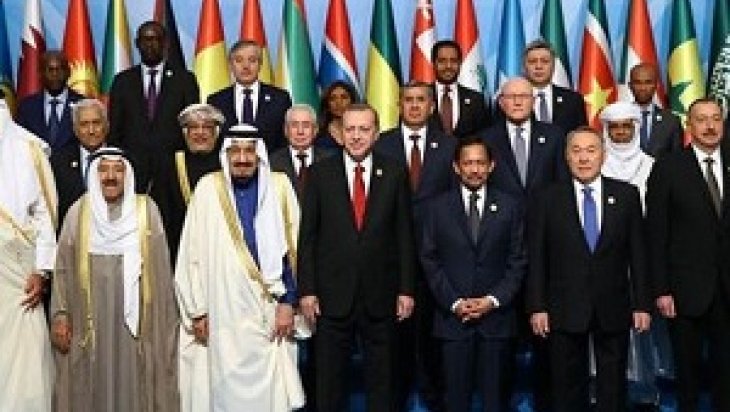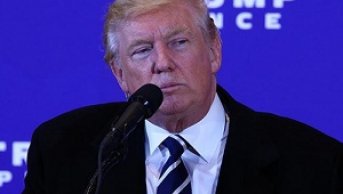The Organization of Islamic Cooperation: A Review Regarding Objective and Budget

The ultimate goal of the Organization of Islamic Cooperation (OIC) in terms of economics is to establish an Islamic Common Market. In order to realize this ultimate goal the Organization is conducting activities for developing economic and commercial cooperation with the purpose of creating economic integration between the Islamic countries.
With its 57 members in 4 continents OIC is the second largest intergovernmental organization after the United Nations. The main objective of the OIC is protecting international peace and harmony, and within this framework contributing to resolution of disputes and conflicts between the member countries, fostering solidarity, and protecting the interests of the Islamic world. The most important economic organs of the organization are the Standing Committee for Economic and Commercial Cooperation, the Permanent Finance Committee, Commission for Economic, Cultural and Social Affairs, and the Islamic Development Bank. In this regard, the ultimate goal of the organization in terms of economics is establishing Islamic Common Market. In order to realize this ultimate goal the Organization is conducting activities for developing economic and commercial cooperation with the purpose of creating economic integration between the Islamic countries.Common market implies economic, social and political cooperation and synchronizationin the short run, while it is a deeper process of integrationin the long run. This process requires the member countries to come together around some basic principles. Among these principles the most important one is respecting to the sovereignty rights of the member states and the equality in rights and responsibilities. The other important principle is that the member countries should solve the conflicts with peaceful efforts. From economic perspective the most important principle is enhancing human development and economic welfare of the member countries’ people in an inclusive and sustainable way. In a more general standpoint, however, the most important one is the principle of enhancing good governance, democracy, human rights and fundamental freedoms, and supremacy of law on national and international level.
It can be said that the OIC has suitable institutional structure and organs for realizing the objectives stated above.However, there are two problems when the organization is evaluated within the frame of the size that it has reached today. The first problem is that the member countries are not able to come together decisively around the objectives of the organization and act in a synchronized way. The second problem is that although the OIC is the second largest intergovernmental organization after the UN, it does not have a sufficient budget. Moreover, some of the member countries do not contribute to the budget. This second problem has been brought to agenda with the President Recep Tayyip Erdogan and the OIC secretary general Iyad Madani with calling for the discussion ofunpaid dues at the 13th Islamic Summit.Expressing that Turkey will donate a total of $2 million to the OIC, President Erdogan criticized the countries which do not pay their dues and he then read the list of the countries that paid their dues. According to Article 29 of the Charter of the OIC, the budget of the General Secretariat and Subsidiary Organs shall be borne by Member States’ contributions in proportion to their national incomes. Moreover, the organization may, with the approval of the Islamic Summit or the Councilof Foreign Ministers, establish special funds and endowments (waqfs) with the voluntary contributions by Member States, individuals and organizations. The contributions to the OIC’s budget are 10% from Saudi Arabia, 9% from Kuwait, 7% from the United Arab Emirates, 6% from Libya, 5.5% from Iran 5% from Malaysia and Turkey, and 3.5 and lower percentages from other member countries. Palestine is exempt from budget contribution. The studies demonstrate that special funds which are formed by budget and voluntary contributions are far from realizing the objective of the organization, and it does not have enough staff when compared to the workload of office of secretary general and the other subsidiary organs. Furthermore, it is observed that some of the member countries do not make either mandatory or voluntary contributions. This causes planned budget income, which is prepared according to mandatory and voluntary donation pledges, cannot be realized, and as a result, planned spending cannot be made. Another significant issue in this framework is that the countries, which make higher mandatory and voluntary contributions, have more right to speak in the decision processes, and that this situation creates displeasure among the member countries. The OIC represents 1.6 million Muslim around the world. The main reason for why the most of the member countries are not be able to pay mandatory contributions is that they are among the poorest countries in the world. Therefore, the regulations and suggestions regarding limiting the right to vote of countries which do not make mandatory contribution cannot be accepted. It is natural that the countries with higher national income make more mandatory and voluntary contributions as the organization aims to improve economic and social welfare of the Muslims living in these countries. However, the decline in oil price has a negative effect on the budgets of oil exporting countries, particularly Saudi Arabia and Iran. Based on the anticipation of low economic performance and budget income, it can be suggested that, for near future, contributions by these countries to the organization will also be affected negatively. This situation indicates the necessity of forming a more stable and fair budget structure. For the short term, transferring a specific amount of profits of financial sector institutions, especially those of Islamic financial institutions, to the organization’s budget can be considered as a measure since these institutions have been affected quite less negatively by the global financial crisis and increased their profits. In this framework, a financial transaction tax can also be designed. However, when the OIC’s goal of creating Islamic Common Market in the long term is taken into consideration, the permanent solution is implementing a tax system which is based on the per capita income levels of the member countries. This solution will provide an equal distribution of budget burden of the organization among member countries. More importantly, this solution will contribute citizens of member countries to come together around the organization’s objective. As it will create a supervision and representation mechanism on the level of member countries’ citizens, this solution will also serve to the goal of fostering democracy in the member countries. Another important point regarding this solution is that it will provide the organization to be attributed a status similar to European Union, and it will necessitate an institutional reconstruction.
This article was published in Ortadoğu Analiz journal with the title of "The Organization of Islamic Cooperation: A Review Regarding Objective and Budget”



